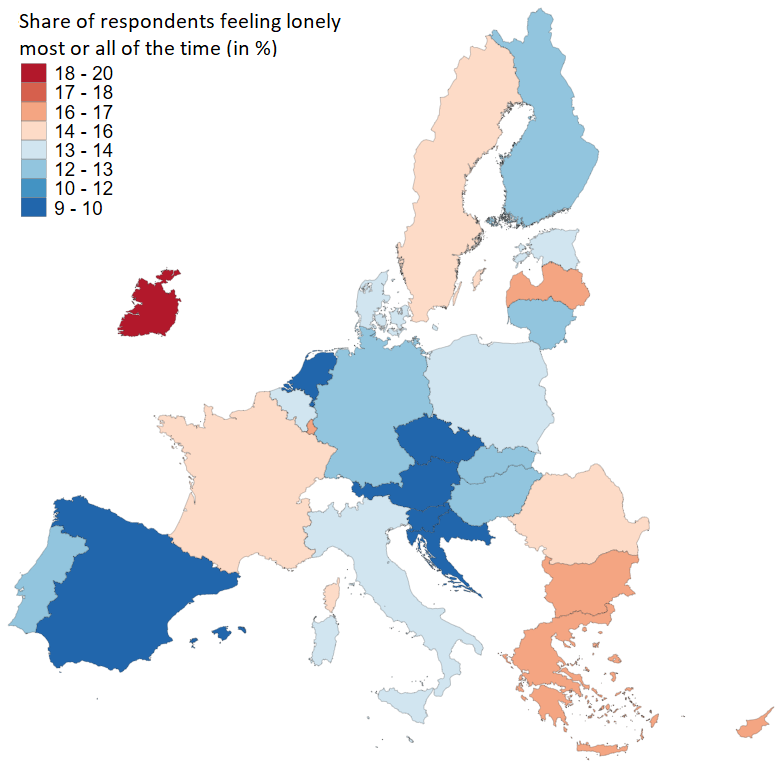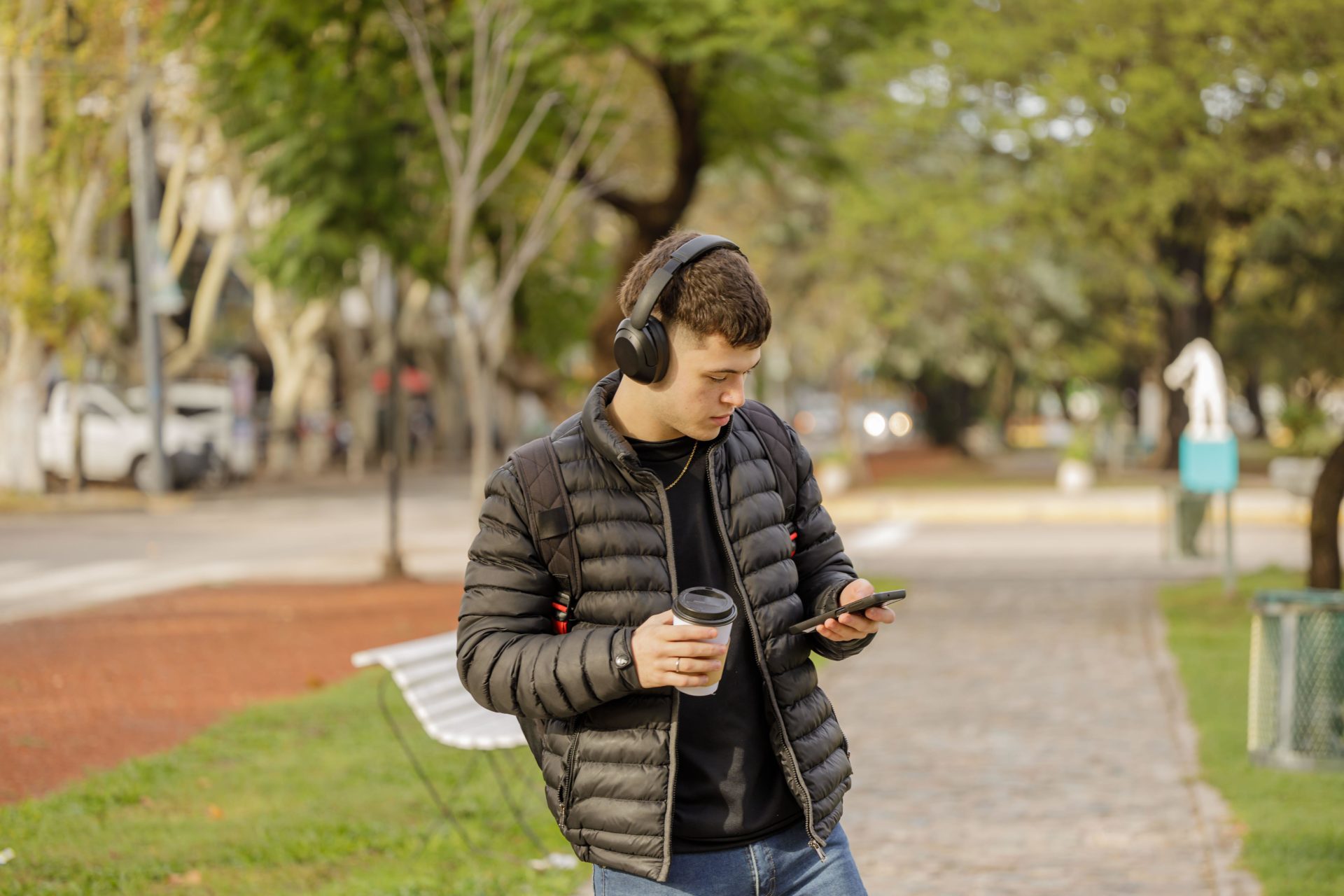People need to keep the 'Irish hello' alive to help stop loneliness increasing in society, a writer has said.
The 'Irish hello' is an acknowledgement, usually through a nod or a brief vocalisation, of someone in the street who you don't know.
According to an EU-wide survey, loneliness is most prevalent in Ireland with over 20% of respondents reporting feeling lonely.
Luxembourg, Bulgaria and Greece followed with the lowest levels of loneliness seen in the Netherlands, Czech Republic, Croatia and Austria.
 Share of respondents by country who felt lonely most or all of the time over the past four weeks preceding the 2022 survey. Source: European Commission
Share of respondents by country who felt lonely most or all of the time over the past four weeks preceding the 2022 survey. Source: European CommissionWriter Nuala Woulfe told Newstalk Breakfast she's been looking into the decline of the 'Irish hello'.
"Apparently, and it's very sad to say, we are the loneliest country in Europe," she said.
"I was reading about how the Green Party wants a dedicated Minister for Loneliness and a taskforce set up.
"I had actually been talking to a number of my mum friends on a WhatsApp group prior to this.
"One mum said she felt she was getting blanked a little bit more, somebody even suggested is this since COVID?
"Maybe people are not making as much eye-contact or are they shy".
'It nearly broke my heart'
Ms Woulfe said people need to put effort in to be more connected.
"One day I met an old man on the road and I did the, 'Hello - how are you?' and he turned around and he says 'Thank you' to me," she said.
"Honestly it nearly broke my heart because I had the feeling like, 'Oh God maybe nobody said hello to you today, last week'.
"That could be me in years to come or that could be any of our parents".
 A boy with headphones uses his mobile phone while walking, 20-5-23. Image: Juan Roballo / Alamy
A boy with headphones uses his mobile phone while walking, 20-5-23. Image: Juan Roballo / AlamyThe 'Irish hello'
Ms Woulfe said younger people seem to be less involved.
"I will often see young people just plugged into their earphones and their eyes are down," she said.
"I just don't know have we been modelling behaviour for kids - this is what we do.
"I think it's modelling behaviour as well - so that's part of the reason," she added.
It comes after the US Surgeon-General warned loneliness and isolation increase the risk for individuals to develop mental health challenges.
Last year Dr Vivek Murthy said lacking connection can "increase the risk for premature death to levels comparable to smoking daily."









